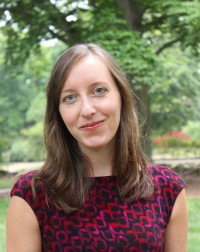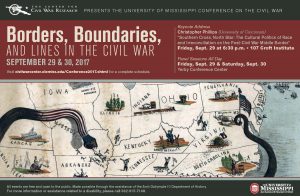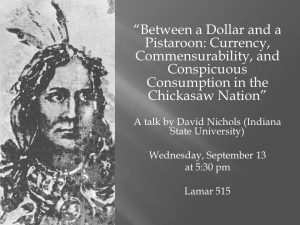The History B.A. requires two HST courses from each of the following regions (18 credit hours total):
American History
European History
History of Other Regions
In addition, the B.A. requires an additional 15 credit hours drawn from any HST course.
When new HST courses are approved by the faculty, the instructor may determine the course’s regional designation if there are any ambiguities.
The following courses count as American History:
130 Intro. to US History to 1877
131 Intro. to US History since 1877
400 Early America to 1715
401 Colonial America, 1607-1763
402 Revolutionary America, 1763-1800
403 US – Emerging Nation, 1789-1850
404 US – The Civil War Era, 1848-1877
405 US – Nation Redefined, 1877-1918
406 US – WWI to WWII, 1914-1945
407 US – The Nation since 1945
408 US – WW II to Watergate, 1945-1974
409 US – Watergate to the Present
410 Native America, Pre-contact to 1850
411 Native America since 1850
412 Mississippian Shatter Zone
414 African American History to 1865
415 African American History since 1865
418 African American Women’s History
419 Black Women’s Enterprise & Activism
420 History of African Americans in Sport
422 The Rise and Fall of American Slavery
423 History of Mass Incarceration in the US
424 The Civil Rights Era
425 Era of Reconstruction
426 The American Dream
427 Disease and Medicine in American History
428 US Women’s History
429 US Gender History
430 US Foreign Relations
431 US Legal History
432 US Economic History
433 US Labor History
434 US Religious History
435 US Military History
436 US Sexuality History
440 The Military History of the Civil War
450 Southern History to 1900
451 The South in the Twentieth Century
452 The History of Mississippi
453 Economic History of the South
454 Women in Southern History
455 History of Religion in the South
456 Southern Music History
474 Vietnam War
490 Problems in History – America
The following courses count as European History:
120 Intro. to European History to 1648
121 Intro. to European History since 1648
301 The Golden Age of Athens
302 Law and Life in Ancient Athens
303 Alexander the Great
304 Roman Republic
305 Roman Empire
306 From Republic to Empire
308 Slavery in Ancient Greece and Rome
309 The Middle Ages
310 History of Medieval Christianity
311 Medieval Church and Empire
316 Martyrs of the English Reformation
317 Late Middle Ages and Renaissance
318 Renaissance and Early Modern Studies
319 Reformation Europe
320 Tudor-Stuart Britain & Ireland, 1485-1688
321 Tudor England, 1485-1603
322 Stuart England, 1603-1714
323 Age of Absolutism and Enlightenment
326 Age of Revolution, 1750-1850
331 Europe – Imperialism to World War II, 1890-1945
332 Europe since 1945
334 France since 1789
335 The French Revolution
336 The Napoleonic Era
337 History of London
338 Great Britain in the Modern Age
339 British Empire and Commonwealth
340 Italy since 1815
341 History of Germany, 1789-1918
342 History of Germany since 1890
343 History of the Holocaust
344 Late Imperial and Revolutionary Russia
345 Russia in the Twentieth Century
347 Science in the Modern World
348 Women who Ruled in European History
349 Society and the Sexes in Modern Europe
470 The First World War
491 Problems in History – Europe
The following courses count as History of other Regions:
150 Intro. to Middle Eastern History
160 Intro. to Latin American History
170 Intro. to African History
180 Intro. to East Asian History
307 History of Ancient Christianity
350 Muslim World – Origins to Middle Ages
351 Muslim World – Middle Ages to WWI
352 The Middle East since 1914
355 Water in the Middle East
360 Colonial Latin America, 1450-1820
361 Latin America since 1820
362 History of Mexico and Central America
363 History of the Caribbean
364 Independence of Latin America, 1760-1830
366 Race and Ethnicity in Latin America
367 Social Revolutions in Latin America
368 Latin America and the Cold War
370 Modern Africa
371 History of Southern Africa
373 War, Rebellion and Revolution in Africa
374 Nationalism in Africa
375 History of Islam in Africa
380 Pre-Modern China
381 Late Imperial and Modern China
382 China in Revolution
383 China and the United States since 1784
384 Global Shanghai
385 Gender/Sexuality in East Asian History
387 Modern Japanese History
388 War and Memory in Japan
389 History of Japan-United States Relations
392 South Asia and the Indian Ocean
482 Samurai in Film
492 Problems in History – World
The following courses do not fit any of these categories:
300 Historical Methods
460 Public History
461 History on Location
463 Practicum in Public History
465 Digital History
472 The Cold War
478 History of Pharmacy
479 Alcohol in the Americas
493 Undergraduate History Internship
496 Topics in History Abroad
The following courses may fit one of the three categories, based on the content and/or instructor of the particular section:
199: What is History?
471 The Second World War
481 Topics in History and Film
494 Directed Readings in History
498 Undergrad Research Seminar in History
499 Undergrad Reading Seminar in History
 It’s hard to believe that we’ll need to start thinking about Summer and Fall 2019 courses, huh? It’s true, though! Summer and Fall academic advising will officially begin immediately after spring break. Let’s celebrate advising season together, the best way we know how: with cupcakes.
It’s hard to believe that we’ll need to start thinking about Summer and Fall 2019 courses, huh? It’s true, though! Summer and Fall academic advising will officially begin immediately after spring break. Let’s celebrate advising season together, the best way we know how: with cupcakes.








